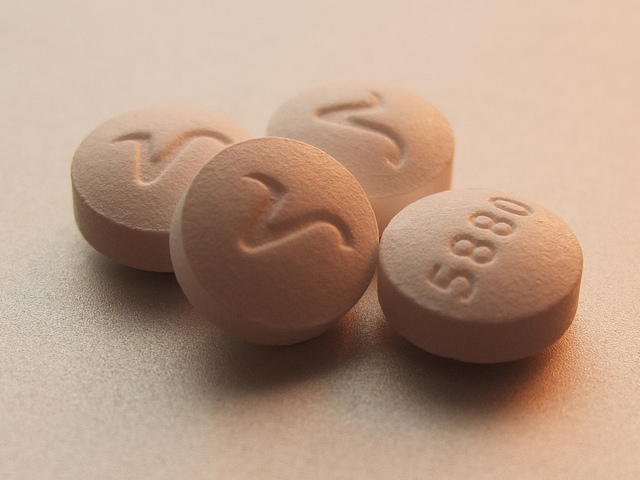We’ve heard for years about the advent of a “female Viagra”–and yesterday, that became reality as the FDA approved Addyi, the first pill for treatment of low libido for women.
Addyi works by changing the balance of neurotransmitters like serotonin and dopamine. It’s approved for low libido for either sex, though primary attention has been given to its application for women. It’s only available through doctor or pharmacist prescription.
The reception to the approval has been predictably controversial. On one hand, many women’s rights groups have hailed it as the single most important pharmaceutical triumph for women since the Pill. It’s widely regarded as the sign that women’s right to sexual well-being is (finally!) being taken seriously. Viagra, a drug that treats the most prominent male sexual dysfunction, was approved in 1998–almost twenty years ago. Doesn’t it make sense that women should also have medical resources to aid their sexual well-being? Raise your hand if you agree!
On the other hand, some critics of Addyi argue that it is only marginally effective; that it has many side effects; and that it may lead to rampant overuse or abuse. But I think that these concerns are misplaced, and here is why.
1. Effectiveness: in clinical trial, women who took Addyi reported 4.4 “satisfying sexual experiences” a month, compared to 3.7 for placebo and 2.7 before the study. That means Addyi increased satisfying experiences by almost twice a month. That, to some critics (probably male), might not amount to much, but it’s a substantial boost to most women, and especially those who see themselves as having low desire.
2. Side effects: The side effects include low blood pressure, fainting, nausea, dizziness, or sleepiness. However, this is a standard level of side effects in many commonly available drugs. The fact these side effects are deemed much more costly than with other drugs, only reveals the notion that the problem Addyi solves isn’t as serious. In other words, it stems more from belittling of the seriousness of female sexual dysfunction, than from riskiness of this drug compared to other drugs.
3. Possibility of overuse: This one is perhaps the most risible of all concerns raised by the critics. They seem to think that, just because Addyi has been approved, women will all rush to get their hands on this drug any way they can, through their doctors or through illegal means, and pop them as a recreational boost….sort of like how many men use Viagra these days. But this “fear” is misplaced for several reasons.
-Unlike Viagra, which you take only on occasions when you need it, Addyi has to be taken every day, just like the Pill. Also, it costs quite a bit, and whether and/or how much insurance would cover it hasn’t been decided yet. Just with those restrictions alone, it curbs improper or un-prescribed use.
-What does it really mean to say that a drug is “overused”? If more than expected number of women claim to have low desire and are prescribed Addyi, does that mean the drug is over-prescribed, or that a higher than suspected number had been living with low libido all along? And is that a reason to tamper down the number of patients in order to fit our ideas of the appropriate number of women who should be taking this drug?
-Some critics argue that the appearance of Addyi might lead women to the “mistaken notion that lack of spontaneous sexual desire, absent stimuli, [is] abnormal.” Translation: if you’re not feeling frisky, go watch some porn, have a date night with your partner, do more of those naturally stimulating things instead of complaining. This again belittles the seriousness of low desire in women and how negatively it impacts their well-being. This view is also condescending toward women, who know what feels “normal” and “abnormal” for them without being swayed by the FDA approval of a drug. I mean, come on!
At Peaceful Dumpling, we tend to emphasize natural ways of maintaining health, fitness, and well-being. But the path to health and wellness is incredibly personal, and getting one more option available to women counts as a victory to us.
However, if you are not feeling “like yourself” and are a little less bright-eyed and sultry than you would like to feel, and wish to consider more holistic options than a drug, we’ve discussed many natural ways to boost sexual energy in the past. Check these out:
How to Embrace Your Sexuality in a Healthy Way
What do you think about Addyi?
__
Photo: Micah Elizabeth Scott via Flickr

